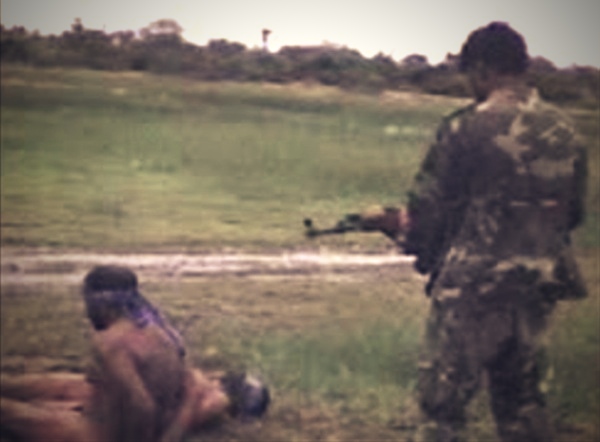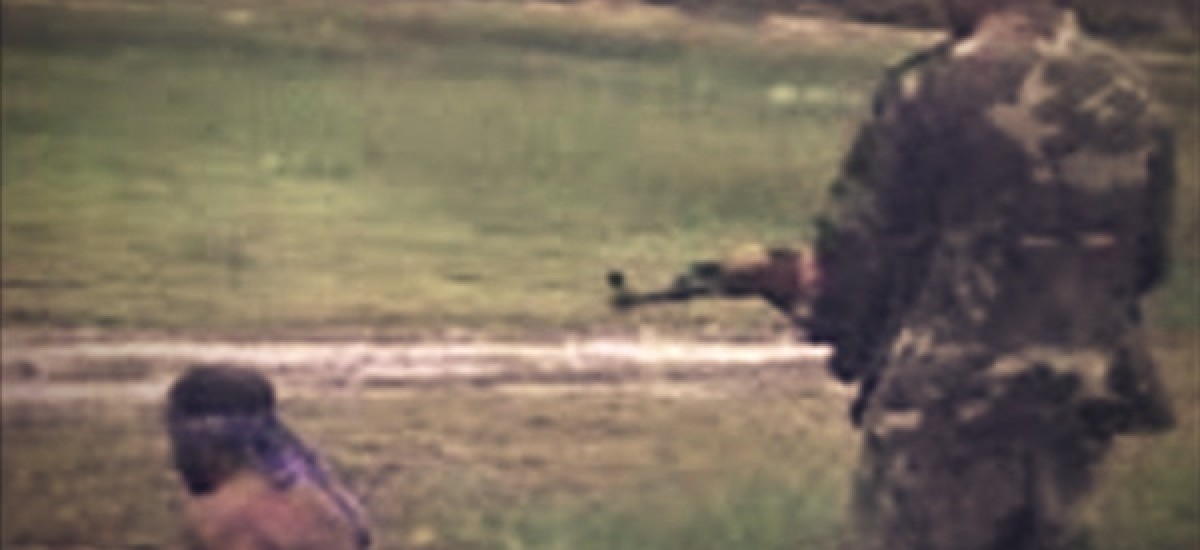
The recently telecast Channel 4 documentary on ‘Killing Fields of Sri Lanka’ sheds no new light (despite claims to the contrary), in terms of groundbreaking evidence, regarding the incidents related to the end of the war in Sri Lanka. If anything, it will seek to entrench already hardened attitudes and decrease the ever reducing space for dialogue and reconciliation.
From the government’s perspective, it will seek to discredit the documentary as fake as it feeds into the insecurity that it surrounds itself with, of a perception that the west has been influenced by a highly successful pro LTTE lobby. The end result will be the securing of its ‘credibility’ especially as a ‘victim of an external conspiracy’ consequently rallying the people’s sympathy, thereby making any genuine attempt to hold the government accountable for anything fruitless.
On the other side, for the pro LTTE lobby (largely represented by their supporters in the UK, US and Canada) this will be a ‘vindication’ of their claims regarding the Government and its conduct of the war, thereby serving to boost their movement and support whilst ignoring the part that they have played in fund raising and supporting the LTTE (despite the proscription of the LTTE as a terrorist group). This has been helped by a fairly sympathetic media (angered at being excluded from the front lines by the Sri Lankan Government) which so far has tended to focus on the government’s part in the end of the war rather than also holding these representatives in the West, accountable for the crimes committed by the LTTE.
It is this decrease in the space to explore mutual understandings that lie at the heart of most people’s disapproval of moves like Channel 4 or the UN to talk about War Crimes. At the end of the day, the repercussions will not be felt by the Diaspora in the Global North or even by the Government. It will be felt by the ordinary people in Sri Lanka who have to live with the consequences. For those of us who are active in trying to work on post conflict reconciliation, it is not about defending the indefensible. We are not here to deny or justify abuses. War is never just or civil, even when it is fought against a proscribed terrorist organisation. There is no excuse for abuses to be meted out. But the question remains how, who and when should accountability take place? Is it when the wounds are still fresh or is it when there has been enough time for healing to have taken place? Equally when accountability is demanded it has to be done against all responsible and for all crimes. Whilst blame is very often vociferously laid at the feet of the Sri Lankan government for its actions, nothing is said with the same intensity about the atrocities committed by the LTTE such as: the ethnic cleansing of 100,000 Muslims from the north (who still live in refugee camps today in the north west of Sri Lanka, with no one voicing any concern about them); the assassination of key political and intellectual leaders (of all ethnicities) or the forcible recruitment of child soldiers. The reports do not carry any discussion of how the LTTE combatants mingled with civilians and forcibly conscripted them to fight in the final stages, as has been documented in an interview given by a former Tamil National Parliamentarian who was trapped inside the war zone during this period. This former Member of Parliament said that he saw people being shot and killed by the LTTE. No explanation is given about the fact that during the heaviest of fighting, the LTTE also moved its heavy artillery positions near the no fire zones and within the hospital compounds and used them. The Tamils who objected to this move were brutally shot dead which has been corroborated by the war victims and even former LTTE cadres and can be viewed on You Tube. Nor do they discuss the phenomenon that Mark Meadow’s 2010 book ‘Tea Time with Terrorists’, describes of how former LTTE fighters have explained LTTE tactics such as “LTTE cadres dressing up in Sri Lankan army uniforms, then firing at unarmed civilians to put false blame on the army”.
The truth of the matter is that the conflict in Sri Lanka is not black and white. The truth is somewhat blurred in between. Unfortunately, in the midst of this flurry of interest once again in what happened in Sri Lanka in 2009, the real discussion is becoming sidelined, for whilst it is important to look at the past, it is vital that an eye is placed towards the future at all levels, not just political. How can Sri Lanka learn from the mistakes of the past that sidelined the minorities and caused the deaths of hundreds of thousands of civilians? Successive governments have always hid behind the pretext of winning the war and defeating the LTTE militarily without addressing some of the fundamental key issues concerning minorities. Now with the defeat of the LTTE, there is a real opportunity to address the legitimate grievances of the minorities to ensure that the country is not subject to a repeat of the conflict ever again. The questions becomes, how can Sri Lanka, despite more than sixty years of independence, develop a constitutional framework that will satisfy the aspirations of all its citizens and deliver an environment of peace and harmony? Moreover at a grass roots levels, how can people work towards reconciliation between polarised communities (growing increasingly suspicious of each other thereby encouraging inward looking clannish tendencies) and ensure an environment of peace, justice and equity that can hold politicians accountable for good governance? Like it or not, it is at the grass roots level where ideologies take root and prosper or fester and also where consequences are felt, either way.
Those involved in conflict resolution and peace building will often talk about a period of healing in order for accountability to take place. The Bloody Sunday acknowledgement by the British Government took 38 years after a 12 year investigation. Poland and Germany still have strained relations incurred during the Second World War. The period of healing for Sri Lanka is still in a baby stage of 2 years yet is not being addressed. As it stands it is doubtless felt that such endeavours will in fact damage efforts being undertaken to achieve reconciliation.
What is critical for Sri Lanka is the rebuilding of trust which can only be rebuilt when a space is created for effective dialogue and understanding. Rebuilding trust is about honouring unity and celebrating diversity, working towards equity and justice and ensuring the eradication of social prejudices in building a collective identity. Sri Lanka needs the space for this to happen. It needs time for its people to go through the healing process. Its people need to come up with their own locally developed solutions.
Transparency, accountability and social justice are the pillars of a mature democratic society. Sri Lanka’s journey is still very early in trying to achieve this, but nevertheless it has started. Accountability will come in time once people are ready to not allow the past to become a ball and chain for the future. The release of this documentary and other reports provides unwarranted distraction from the main issues that the government (and any government in a post conflict country) should be held accountable for including: steps taken towards reconciliation, stemming the rising cost of living, tackling corruption and trying to ensure law and order. By demanding it from outside, it also abrogates responsibility from all the stakeholders at all levels within Sri Lanka to ensure that seeds are planted at the grass roots that will not fester into another conflict. This is possibly the biggest disservice we do to those people who died (on both sides) of the conflict for something they believed in or were forced into due to other’s selfishness.
###
Note on author: Amjad Saleem was previously the Sri Lankan country director of British based NGO Muslim Aid, where he oversaw post tsunami and post conflict reconstruction and rehabilitation. He was at the fore front of relief efforts for the current crisis which saw 300,000 people being displaced as the war came to an end in Sri Lanka.
His main interest is in building bridges between communities to help further respect, understanding and acceptance. He was instrumental in developing a unique partnership in Sri Lanka between Muslim Aid and UMCOR (United Methodist Committee on Relief), based in the States, which was heralded by the Commonwealth Foundation as the ‘missing link’ between interfaith dialogue and grass roots action. Using this partnership, Amjad was instrumental in bringing religious and civil society leaders together in December 2008 to discuss real practical ways of reconciliation post conflict in Sri Lanka. Amjad is currently consulting with the Congress of Religions and The Methodist Church in Sri Lanka to establish an Interfaith Coalition for Peace to undertake practical projects using spirituality as a resource for reconciliation and rehabilitation.
Amjad is currently working as Head of Communications for The Cordoba Foundation, an independent policy, research and public relations think tank based in London promoting intercultural dialogue and positive coexistence among civilisations, ideas and people , and advocating dialogue and action to promote understanding and acceptance of inter-communal and inter-religious issues in Britain, Europe, US and beyond.

